|

Book
American Engravers
The 21st Century
by
C. Roger Bleile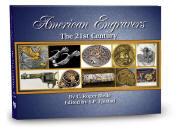
| |
JAGDSZENEN – German: Literally “hunting scene.” A game scene.
French: scènes de chasse, Italian: scene di caccia or paesaggi,
Spanish: escena de caza.



Pictured are jagdszenen on the left and right sides of a German
Gustloff 16 gauge shotgun engraved in simple line cut and a more
refined example from another German shotgun.
|
JAGDWAFFENGRAVUR – German: Literally hunting weapon engraving.
Jagdwaffengravur is the engraving of a sporting rifle or shotgun.
|
JEWELER’S SAW – Sometimes called a piercing saw or filigree saw,
the jeweler’s saw is a small hand saw having a large bow and uses very
thin, fine toothed blades. Its purpose is for cutting out shapes from
precious metal sheet stock. These shapes are later inlayed into a
harder metal such as steel or soldered in place such as adding letters
or a figure to a silver belt buckle.
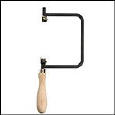
|
JEWELRY ENGRAVING – Those who engrave jewelry fall into two
areas, fine jewelry and craft jewelry. In either case, the engraver is
most likely a bench jeweler primarily and an engraver as an added
skill. There are however some occupational engravers who take in
jewelry work along with other items such as guns, knives, awards, etc.
Since those engraving jewelry mostly work on broaches, bracelets,
earrings, pendants, and rings, their “canvass” is of limited size. As a
result most jewelry engraving is limited to border decoration, ciphers,
initials, and monograms. In fine jewelry the gemstone(s) is the focus
of the work piece and any engraving is there to enhance the stone’s
beauty while in craft jewelry there may be no stone setting and the
jeweler may use engraving in a less limited and more artistic manner.
In any case the engraving of jewelry or adornments is probably the most
ancient of the engraver’s specialties with many examples of engraved
brooches, earrings, necklaces, and rings dating to prehistoric times.
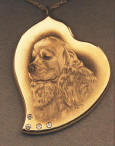
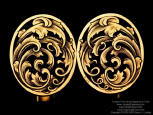
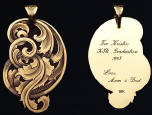
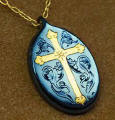
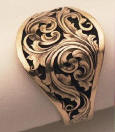
Pictured are five examples of jewelry engraved by Steve Lindsay.
|
|